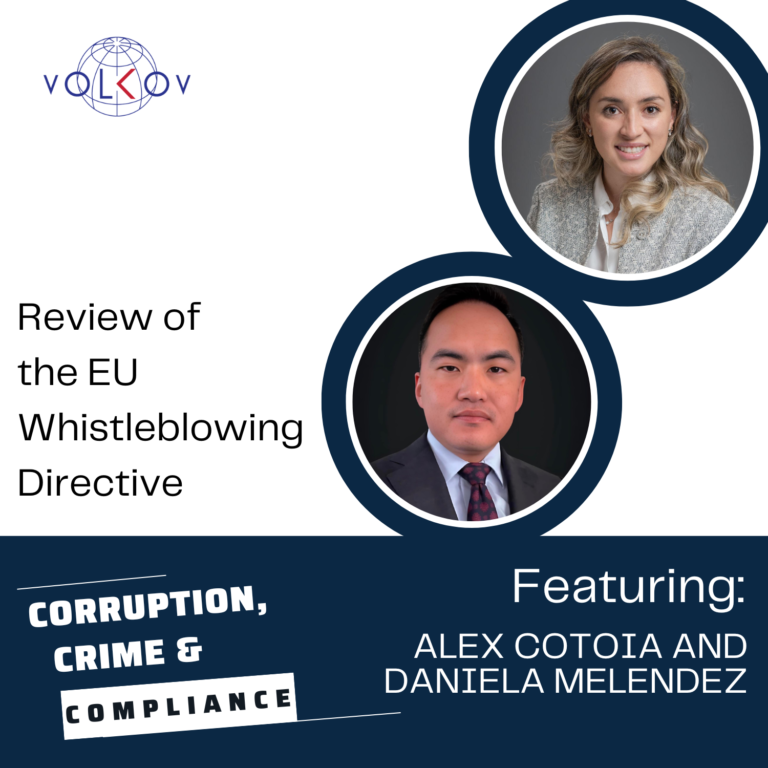Directive 2019/1937 of the European Parliament and Council dated October 23, 2019 on the “protection of persons who report breaches of Union law” (the “Directive”) is currently being implemented by EU Member States. The directive has broad applicability to organizations operating in the EU internal market and applies to both public and private sector organizations alike.
Whistleblowers are guaranteed legal protection to the extent: (1) they have reasonable grounds to believe that the information reported was true at the time of the report; and (2) the whistleblower reported either internally to the organization, externally to a competent authority, or publicly. Private sector organizations with 50 or more workers are legally required to establish channels and procedures for internal reporting of EU law breaches and conduct appropriate follow-up.
In this episode, Mike Volkov is joined by Daniela Melendez and Alex Cotoia from the Volkov Law Group, who bring their expertise to the table as they delve into the EU Directive and its implementation by several member states.
Listen to this discussion to understand and navigate the complexities of the EU Whistleblowing Directive.
- The EU Whistleblower Directive shifts the burden of proof on retaliatory actions to the person taking the detrimental action, requiring them to demonstrate it was not linked to reporting concerns.
- Global companies are taking a proactive stance by increasingly focusing on robust ethics and compliance programs. This strategic move is aimed at mitigating risks and promoting positive corporate citizenship in today’s economy, where adherence to legal and ethical standards is paramount.
- France signed the EU Directive into law on March 21, 2022, outlining protocols for gathering and handling whistleblower reports, including a two-month deadline for imposing disciplinary sanctions.
- Germany enacted the EU Directive on May 12, 2023, allowing anonymous reports and setting a three-month investigation deadline after receiving the report.
- Spain addressed the EU Directive in February 2023 by covering additional topics like occupational health and safety breaches. The directive established a three-month deadline for investigations and allowed anonymous reports.
- Italy transposed the EU Directive on August 4, 2022, including administrative, financial, civil, and criminal offenses not covered by the Directive, with a 30-day deadline to conduct investigations upon receipt of reports.
- Companies are advised to make resources available to conduct investigations quickly due to the short timeframes set by various countries’ whistleblower protection laws.
Resources:
Michael Volkov on LinkedIn | Twitter
Alex Cotoia on LinkedIn
Email: acotoia@volkovlaw.com
Daniela Melendez on LinkedIn
Email: dmelendez@volkovlaw.com



